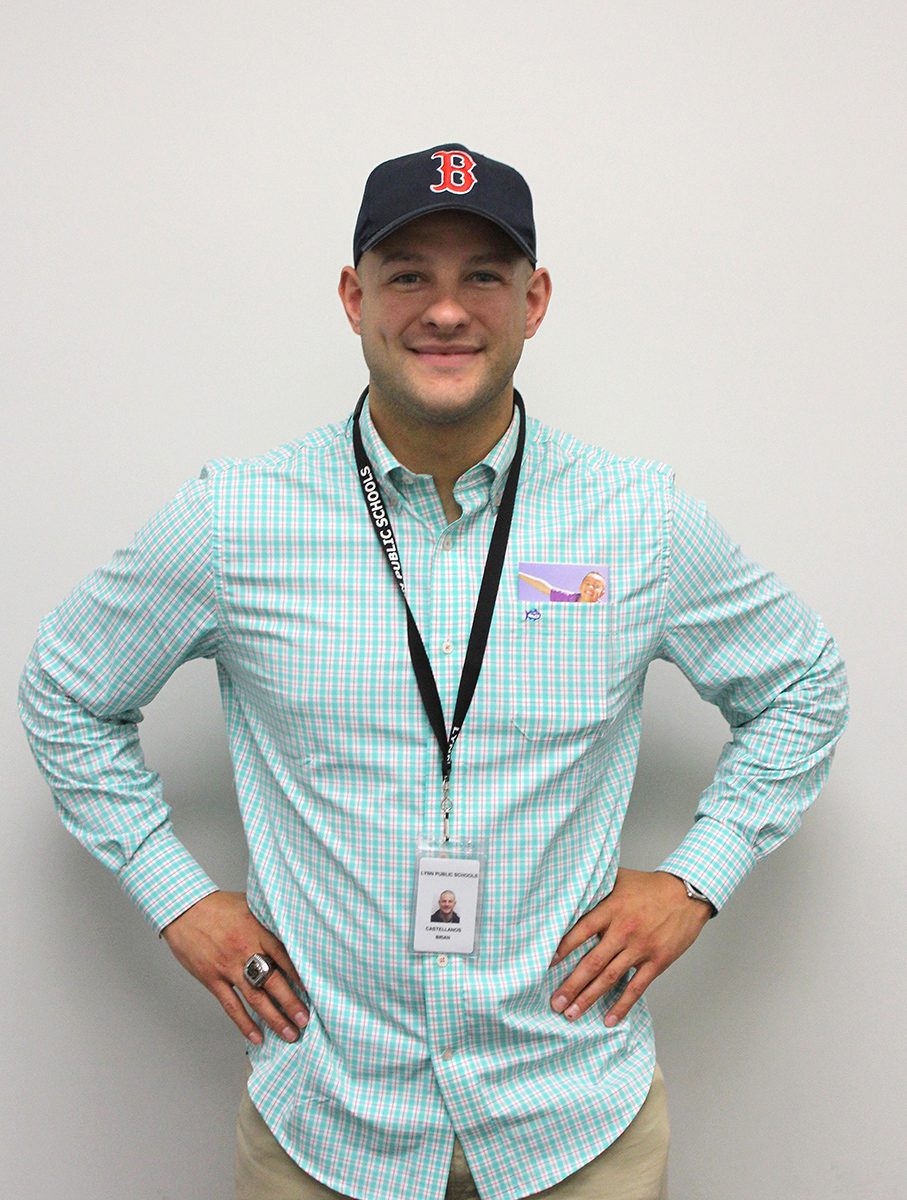LYNN — Lynn School Committee member Brian Castellanos has a successful career as a social worker for the Department of Children and Families, is financially stable and is even pursuing his Ph.D.
But Castellanos wasn’t always the picture of success.
Plagued with poverty growing up, he often struggled to find his next meal and experienced a period of homelessness.
Things started to turn around when Lynn police found him sleeping in his car and the city came together to help — Castellanos, 18 at the time and the captain of the Lynn English High School football team, had kept his situation from others because he was nervous about the stigma.
Castellanos, 28, grew up in a large family on Chatham Street, a three-bedroom home with eight other siblings. He describes his family’s situation as working poor — his father worked two jobs and his stepmother worked as a certified nursing assistant.
Born in Venezuela, his mother died when he was 3, which prompted his father to bring him to the states.
On the books, he said, it looked like his family was generating money, but at the end of each month, they only had enough to cover the cost for housing, which impacted the level of food in the house.
Food stamps weren’t an option, as the eligibility wasn’t there, along with access to other resources that Castellanos sees families take advantage of throughout his work as a provider for DCF. When there was food, it often wasn’t healthy.
“So, there were a lot of nights that I did go home and there was nothing to eat,” he said. “It was an empty fridge. A lot of my meals were at school, breakfast and lunch. Those were probably some of my primary meals that I got throughout the day as a kid. It was not the safest and healthiest upbringing, but it’s made me who I am today.”
At 13, Castellanos said the poverty deepened when his family lost the income of his stepmother, who abandoned the family after getting involved with crack cocaine and prostitution. He ended up living with an older brother, but was working full-time at 14 at McDonald’s and Foot Locker, often using the former for his dinner.
Then, when he was 17 and still dealing with the trauma from the abandonment of his stepmother, his brother died of cancer. Castellanos became homeless.
“There was no vision, there was no higher education, there was no pursuit of the secondary pursuit and I didn’t have that vision because I was too busy surviving, trying to find my next meal — I’m eating at friends’ houses, trying to figure out where I’m going to live, bouncing around houses, seeing where I could stay,” he said.
It was a pinball game, he recalls, until he was discovered sleeping in the car that day, which prompted a high sense of urgency from the city to help out. Lynn Housing Authority & Neighborhood Development (LHAND) set him up with an apartment, where he ended up staying until he went to the Westfield State University Urban Education Program.
Once his food and housing was stabilized, he said, he went off to college and graduated Framingham State University with a 3.8 GPA and a bachelor’s degree. He earned his master’s degree with a 4.0 GPA from Salem State University.
College was home at the time, he said. He would eat during the school year with his meal plan, but go hungry in the summertime, bouncing around houses with people helping to reduce the intensity of his homelessness. This struggle forced him to do well in school, knowing that if he didn’t get the degree, he’d be out on the streets.
“There was poverty and that was something that followed me,” he said. “It still follows me because if I don’t show up to work, if I don’t step up to the plate today, I’m not going to have somewhere to live. I’m not going to be able to feed myself. I won’t be able to provide myself with transportation and it impacts so much.
“But it also motivates me. I also harness these circumstances as a positive reinforcer to really understand that it is important to never quit, to never give up and to always keep pushing forward.”
Castellanos said he’s met so many people who have laid their hands into his success, compassion which drives him to give back and be a voice for people like himself.
“What I represent is bigger than me,” he said. “I’m a first-generation, low-income Latino and I started off with nothing.”

